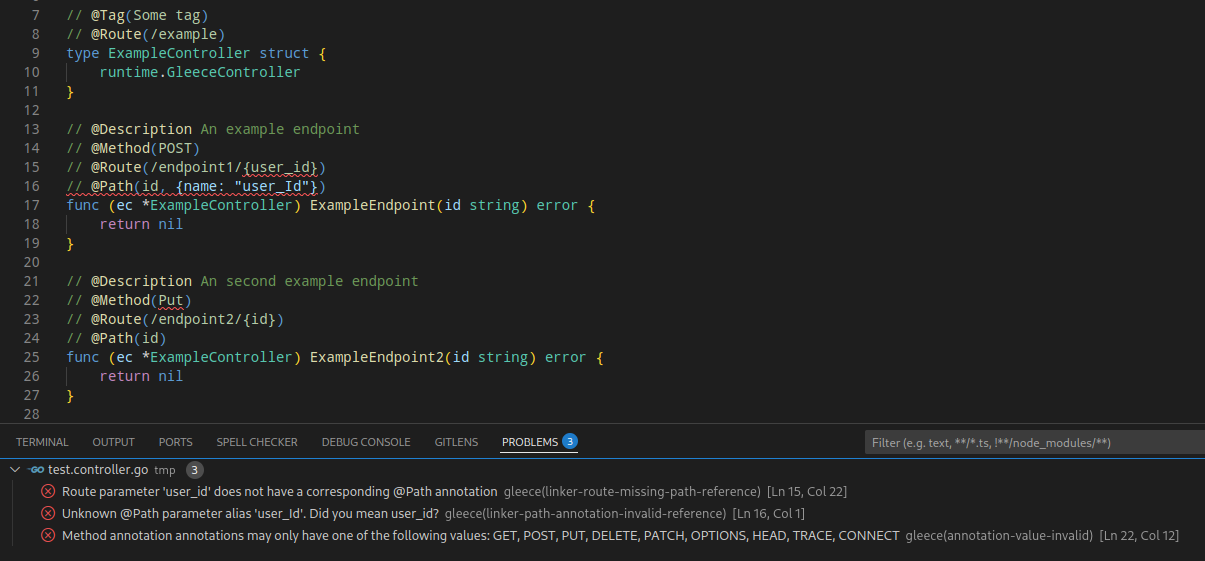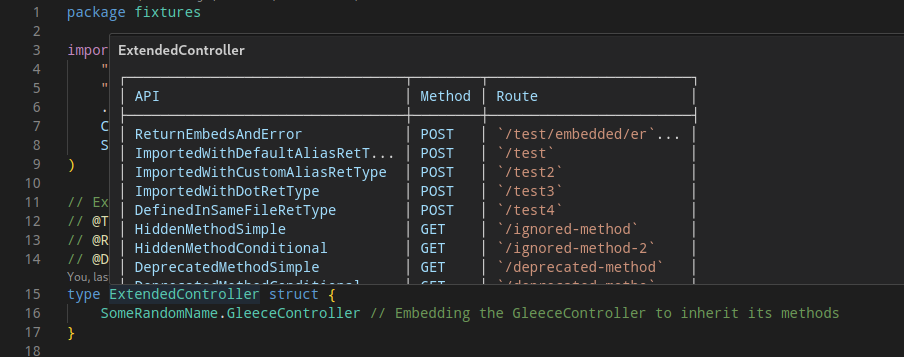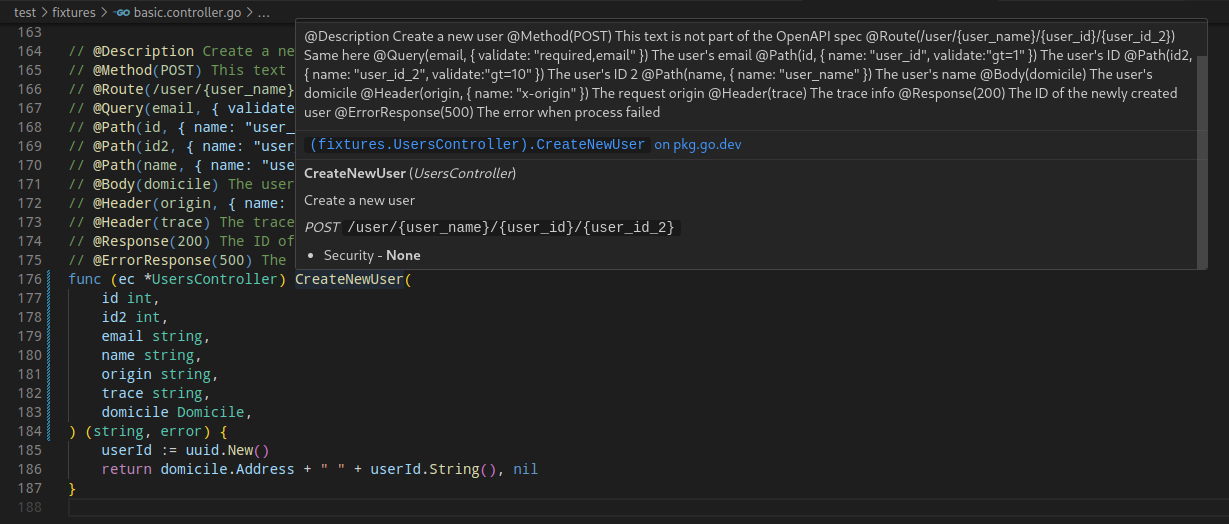Visual Studio Code
While Gleece's comment-based annotation format is designed to be intuitive and familiar, it still requires some taking used to.
The Gleece Visual Studio Code extension provides useful functionality and diagnostics to simplify and enrich your development experience.
Features
- Syntax Highlighting: Improved readability of Gleece-specific elements
- Warning & Error Indicators: Real-time markers and tips
- Documentation Tooltips: Instant documentation on hover for Gleece elements
- Parameter Hints: Function parameter information and suggestions
- Configuration highlighting: Provides information about configuration entries and provides autocompletion
- Code Actions: Quick fixes and refactoring suggestions
Visual Preview

Example showing annotation highlighting and validation features
Quick Start
- Launch VS Code and open the Extensions sidebar (Ctrl+Shift+X / Cmd+Shift+X)
- Search for
Gleecein the marketplace - Click
Installto add the extension to your environment
For more details and updates, visit the VS Code Marketplace.
Configuration
The Gleece extension comes with a few handy configuration options, accessible via VS Code's Settings page.
-
Config Path
- Description: Controls where the extension looks for the
gleece.config.jsonfile. Please note that file name changes may cause configuration linting to fail due to limitations with the VS Code API. - Type:
string - Default:
./gleece.config.json - Key:
gleece.config.path
- Description: Controls where the extension looks for the
-
Enable Symbolic Awareness
-
Description: Controls whether symbolic analysis is enabled.
Symbolic analysis provides contextual, in depth error checking and highlighting as well as features like controller summaries and route overviews.
It is recommended to enable this feature for the best experience.
For in depth information, see the Symbolic Analysis sub-section
-
Type:
boolean -
Default:
true -
Key:
gleece.analysis.enableSymbolicAwareness
-
-
Analysis Mode
- Description: Controls whether the extension fully re-analyzes files on every change or attempts a differential analysis.
It is recommended to use
fullfor the most robust experience. - Type:
full,differential - Default:
full - Key:
gleece.analysis.mode
- Description: Controls whether the extension fully re-analyzes files on every change or attempts a differential analysis.
It is recommended to use
Symbolic Awareness
This is an advanced topic, addressed mainly at developers interested in the inner workings of the extension.
Symbolic awareness analyzes your code to produce in depth, contextual information about controllers and receivers.
It serves as the basis for a multitude of useful features:
-
Annotation placement Certain annotations can only be applied to either a controller or a receiver. An example could be
@Tag. Tags are valid only for controllers.With symbolic awareness enabled, controllers missing
@Tagannotations will have a warning attached to them (as it is recommended to provide explicit tags to all controllers) while receivers will be highlighted with an error as they do not accept tags.
-
Controller summary - a nifty little feature that presents a table of all controller functions, their HTTP verbs and their routes.

-
Receiver overview - presents information about the route currently being hovered over

-
Contextual autocompletion - provides autocomplete suggestions based on whether the annotated entity is a controller or receiver
-
Receiver parameter validation - Leveraging symbolic analysis allows for extensive receiver-level link validation such as:
- URL parameter =>
@Pathannotation @Pathannotation => Receiver parameter@Pathparameter/alias => URL parameter@Header,@Query,@Body=> Receiver parameter- Exactly one annotation for each receiver parameter
- URL parameter =>